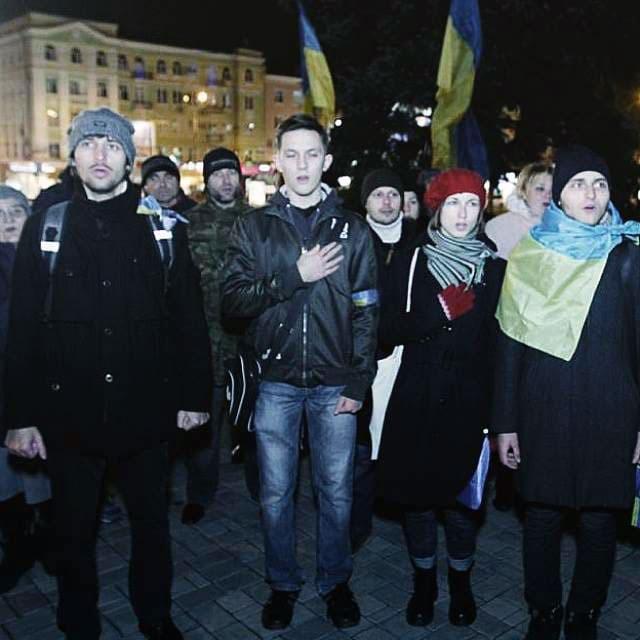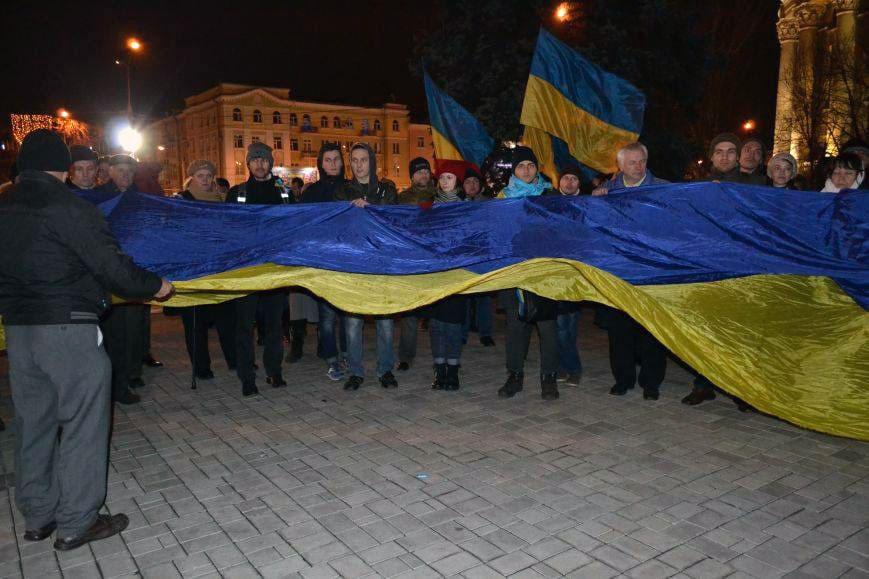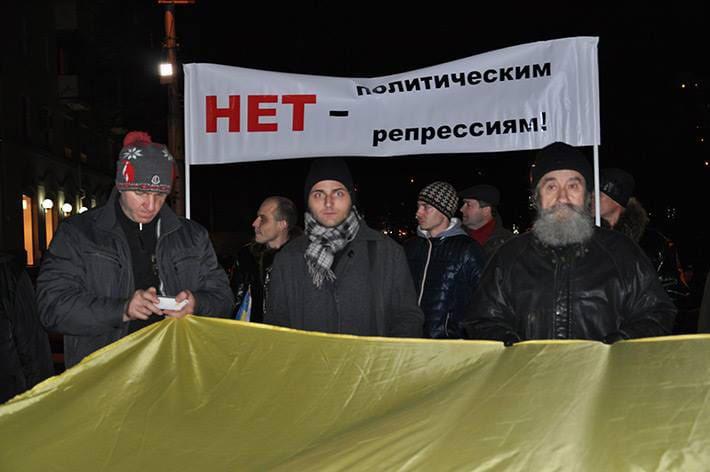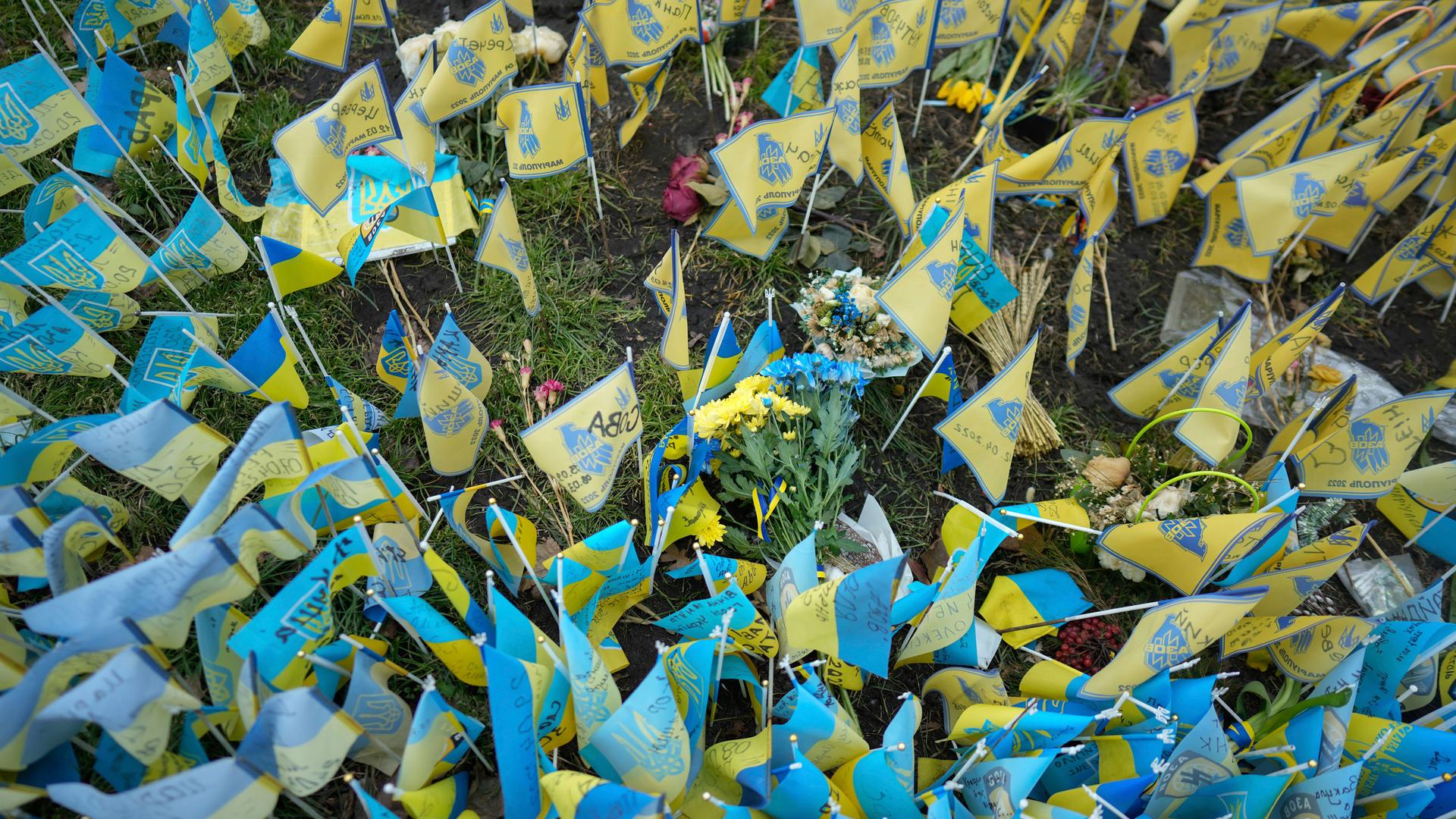On Tuesday in Kyiv, Ukraine’s government held a ceremony to mark the 10-year anniversary since the start of the Maidan Revolution.
Led by president Volodymyr Zelenskiy, they gathered at a memorial built for protesters who were killed during what many call the Revolution of Dignity.
Later, in a video address, Zelenskiy tied the events of 10 years ago to Ukraine’s struggle today. He said that the Maidan Revolution was when “the first victory in today’s war took place.”
Even back then, a majority of Ukrainians were eager to join the EU. Ukraine’s president at the time was expected to sign an association agreement that would strengthen the country’s relationship with the West.
But it didn’t quite go that way.
“The president was a pro-Russian guy, Viktor Yanukovych. And the very day he was supposed to sign the agreement, he stepped back, saying that Ukraine is not going to sign such an agreement,” said Alexander Khrebet, a journalist with the Kyiv Independent.

People were angry, Khrebet said, because at least two generations had aspired to this moment.
In Kyiv, people took to the streets. The biggest demonstrations took place in Maidan Nezalezhnosti, or Independence Square, and soon spread across the country.
“These protests were violently suppressed by the riot police, and then more and more, and every day more people were coming and the protesters started to demand the [resignation] of all the government, and of course Yanukovych resigned,” Khrebet said.
As weeks and months passed, protesters started camping out at Maidan Square. And it was no longer just about joining the EU. Demonstrators were campaigning against government corruption and the heavy influence of Russia.

Soon, the size of the demonstrations ballooned, from tens of thousands, to hundreds of thousands.
Riot police clashed with protesters. More than 100 demonstrators died, and many more were injured.
Finally, in February of 2014, Ukraine’s pro-Russian government buckled. President Viktor Yanukovych fled the country.
“It was insane, you know. It was such a joy that he fled. Everybody was hugging, everybody was dancing, chanting and singing Ukrainian songs, you know, there was, oh — I want to cry, sorry, I didn’t think I’m so emotional after 10 years, sorry, it was just great,” Khrebet recalled.

Since the revolution, the country has been led by pro-Western leaders, but at the same time, Russia has been wreaking havoc.
Soon after President Yanukovych fled, Russia illegally annexed Crimea and sparked the war in eastern Ukraine.
And then, two years later, Russia launched its full-scale invasion.
“Ukraine achieved a lot for this decade. We got that EU agreement, we boosted our civil society, we boosted our state of minds, but the war is not over yet,” Khrebet said.
He believes that without the Maidan Revolution, Ukraine as we know it today wouldn’t exist.
But he also said that for half of his adult life, Ukraine has been at war — and he doesn’t wish that for anyone.
